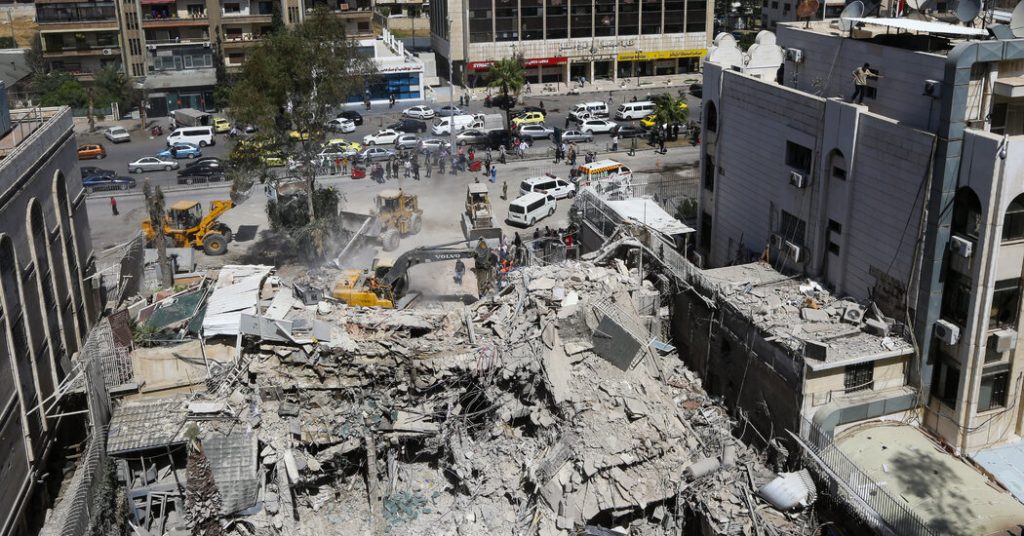In April, Israel was on the brink of an airstrike that killed several senior Iranian commanders in Syria when they informed the United States of their plans, catching the Biden administration by surprise. After the attack, Iran carried out a retaliatory strike, signaling a drastic shift in the rules of engagement between Israel and Iran. The events have sparked fears of a potentially devastating cycle of retaliation and escalation that could lead to all-out war. U.S. and Israeli officials were initially caught off guard by the scale of Iran’s response, and are now focused on preventing further escalation.
Planning for the Israeli strike began months earlier, targeting a senior Iranian military commander. The strike was executed on Syria, killing several Iranian officers in the process. Iran vowed retaliation but also communicated privately that they did not want a full-scale conflict. Amid intensive diplomatic efforts to prevent further escalation, Iran launched a significant attack on Israel, which was largely intercepted by allied defense systems. The success of the defense was seen as a victory by U.S. officials, who urged Israel to show restraint in its response.
The relationship between the Biden administration and Israel had become strained due to differing viewpoints on the Israeli assault in Gaza. The Israeli strike in Damascus further exacerbated tensions as the U.S. was left in the dark about the operation. Despite the successful defense against Iran’s retaliation, Israeli leaders considered the attack an unprecedented threat from a sovereign nation and discussed potential widespread strikes against Iran. However, international pressure and concerns over setting new ground rules for the conflict led to the postponement of any immediate response.
The Iranian response, though significant, was portrayed as measured and proportionate to Israeli actions. However, the attack raised concerns about the potential for further escalation. U.S. officials reassured Israel of their unwavering support while urging caution in avoiding further confrontations. Diplomatic efforts involving intermediaries and allies aimed at containing the conflict and preventing a broader regional war. The situation remains volatile as Israel weighs its response and Iran threatens further action if provoked.
The successful defense against the Iranian attack demonstrated Israel’s technical superiority but also highlighted the fragile balance in the region. While Iran sought to convey its actions as justified and contained, the potential for further conflict looms large. International cooperation and defense systems played a crucial role in intercepting most of the Iranian missiles and drones. The situation remains tense as all parties assess their next moves and the potential consequences of further escalation in an already volatile region.
The world is closely watching to see how Israel will respond following the Iranian attack and the subsequent international efforts to contain the conflict. The delicate balance of power in the region, along with the unpredictability of the situation, raises concerns about a spiraling cycle of violence. The need for de-escalation and restraint is paramount as all sides navigate the complex dynamics of the Israel-Iran conflict and its potential impact on the broader Middle East region.














